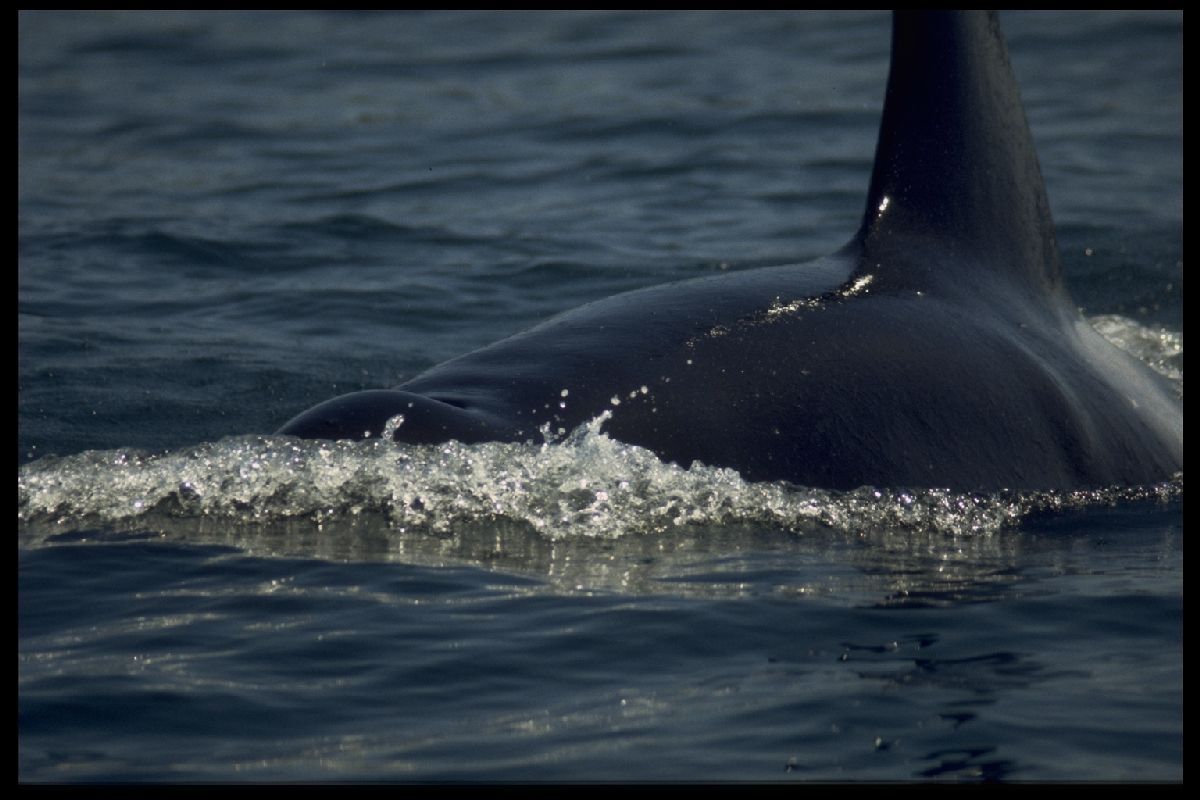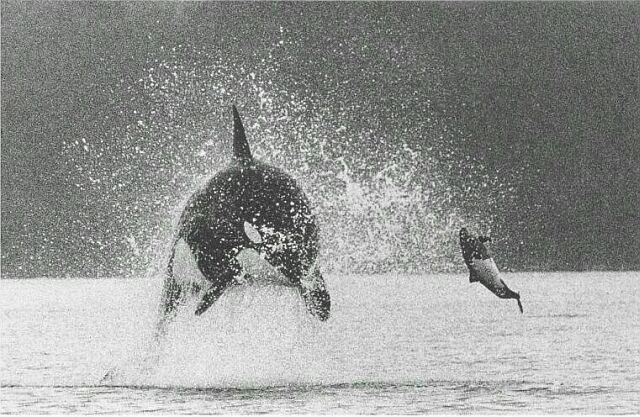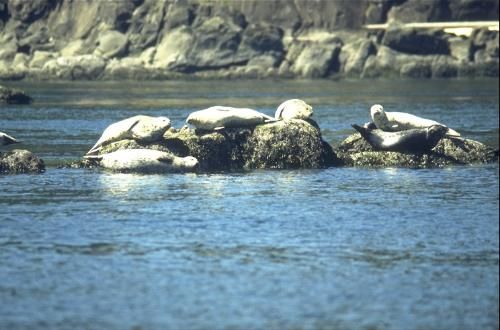| WHAT IS AN ORCA? |

|
| WHAT IS AN ORCA? |

|
Physically, the two races are very similar but there are some differences. The top of the dorsal fin of Transient orcas tends to be more pointed than that of Resident orcas. Less obvious, the saddle patch ( the grey pigmentation along the side & behind the dorsal fin ) is further forward on Transients.
The real difference between the two races is in their behaviors and habits concerning their food preferences. As mentioned, Resident whales prefer a diet of fish, and in the summer months almost exclusively salmon. This is why we can predictably watch the Resident populations in key locations along the coast during the salmon season (when the salmon are travelling to the rivers to spawn). Transients, however, prefer to eat marine mammals. The Transients cruise the coastal waters in search of their prey. Transients have been known to feast on Harbour seals, Sea lions, Dall's porpoises, Harbour porpoises, Pacific Whitesided dolphins, Grey, Minke and other whales.

|
Their hunts are highly co-operative and coordinated efforts. Sometimes a hunt will take just minutes and at other times they last for several hours. Transients employ several hunting strategies. A lot of the time Transients travel around silently in small groups. This perhaps enables them to listen intently, lessen their presence in the water, and sneak up on their prey. The prey Transients are after have well developed skills of their own and are difficult and unwilling victims. So Transients have to use many different strategies to be successful. Once, a couple of Transients were observed slipping in behind one of the coastal ferries, and used its noise to mask their presence before springing on a group of unsuspecting Dall's porpoises. At other times a Transient may breach on top of a prey suddenly, confusing the animal while another Transient goes in for the kill. It is even thought that Transients will modify their blows and echo location to confuse their prey. Young Transients often seem to "practice" on sea birds, which they usually spit out rather than consuming.
Not as much is known about Transient social organization because the sightings are far less frequent than those of the Resident groups. They do not seem to have a predictable "season" where they can be followed. Sightings are opportunistic and may occur at any time of the year.
One theory suggests that large groups of Transients may enter an area and then disperse quickly to various locations. So they may in fact have a higher degree of social organization than first believed .

|
The Transient maternal unit is not fully understood. Young Transient calves stay with their mums for at least their early years . But unlike Residents young Transients might disperse from the maternal group and take on a more independent life fairly early on. It is not rare for lone Transient male orcas to be sighted. Though relatively little is known at this stage, Transient dispersal might represent a coordinated scheme which allows them to take advantage of prey. A larger social description is also very sketchy. Transients do have times when they get together in large groups. There have been a few sightings of twenty or so together. At these times the Transients have resembled Residents... spyhopping, rubbing each other, resting, and even very vocal.
Transients and Residents have never been known to mix socially. In fact
Transients seem to avoid any contact at all. If they happen to be in the
same area the Transients will cross to the opposite shore, duck into a bay
and wait out the Resident passage, or even leave the area entirely. There
have been only a few occasions where Transients and Residents have been vocal
at the same time in the same area. There has been one witnessed direct
confrontation between these two groups. For the most part, however, the two
groups seem to have have resolved their differences by having little or nothing
to do with each other. Being in the same area probably holds no advantage
for Transients. The Residents are probably far too noisy for a successful
Transient hunt.

|
To Communication |

|
Back to the main Orca-Facts |

|
Back to my homepage |